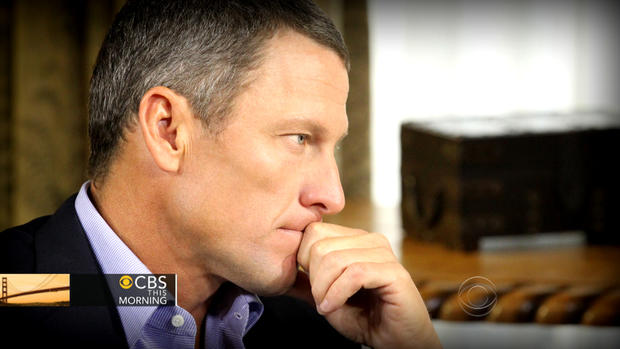Lance Armstrong's doctor could face criminal charges
ROME The Italian doctor at the center of the Lance Armstrong doping scandal could be about to face criminal charges.
In a rare media interview, Padua prosecutor Benedetto Roberti also called for an Interpol-like agency dedicated exclusively to international doping investigations like the one used for Armstrong.
Roberti has been leading a sweeping investigation of Dr. Michele Ferrari for several years, parts of which were used in the U.S. Anti-Doping Agency's 200-page report detailing why it banned Armstrong for life and ordered him to be stripped of all seven of his Tour de France titles.
"It's not finished yet, but it's coming to a close," Roberti told The Associated Press on Thursday of his investigation.
- USADA: Armstrong "ruthlessly" required teammates to dope
- 11 teammates testified against Lance Armstrong, USADA says
- 60 Minutes Overtime: USADA report slams Lance Armstrong
A person with knowledge of the Padua inquiry said that it is "already officially closed. They're just going over it again." The person spoke on condition of anonymity because he was not authorized to speak publicly about the case.
While Roberti would still not reveal details of his inquiry, he is believed to be investigating up to 70 people, including about 20 athletes, plus doctors, physical trainers and massage therapists.
"Armstrong is not under investigation. There are no Americans but there are several foreigners," the person with knowledge of the inquiry said. "There are no tennis players or athletes from other well-known sports."
Indictments could be the next step for those identified by the inquiry.
Doping is a crime in Italy, and Ferrari was already cleared on appeal in 2006 of criminal charges of distributing banned products to athletes. But he remains barred for life by the Italian Cycling Federation under a 2002 ruling.
Armstrong has acknowledged that Ferrari was his trainer until 2004, and Ferrari's name is all over the USADA report. In July, USADA banned Ferrari for life.
The report said the fact that "Armstrong received 'much more than 'occasional advice on training'" from Ferrari is reflected in payments made by Armstrong totaling more than a million dollars to a Swiss company controlled by the physician known as Health & Performance SA.
"The repeated efforts by Armstrong and his representatives to mischaracterize and minimize Armstrong's relationship with Ferrari are indicative of the true nature of that relationship," the report states.
Contacted by the AP on Thursday, Ferrari's wife said the physician was not home, and his lawyer also did not answer.
However, Ferrari issued a statement on his website in July contesting his USADA ban.
"I have NEVER witnessed any kind of doping practices taking place within the USPS team," Ferrari wrote. "I never went to races and at the team training camps I have attended, I was simply performing functional testing and making training programs.
"With regards to the alleged testimonies of riders, some were infamous protagonists of unfortunate events and documented lies," Ferrari continued. "The others probably are those 'semi-Champions' who chose to dope, chasing dreams of glory and money or just for envy, organizing it all themselves for their own sake."
Meanwhile, Roberti is hoping that the Armstrong case serves as an inspiration to instill more focus in the battle against doping.
"There needs to be an organization on WADA's level that carries out investigations and exchanges and cross-checks information," Roberti said. "This case really just worked because of the personal wills of individuals, who did this voluntarily. We need something that always works, and doesn't just depend on personal will.
A meeting of investigators from several different nations at Interpol headquarters in Lyon, France, in November, 2010, was key to moving along the Armstrong inquiry.
"We need an Interpol exclusively to combat doping in sport, with the powers to call on police and justice officials who have shown expertise in this field," Roberti added. "Such individuals exist in America, Italy, France and Germany, and some in Spain, too."
